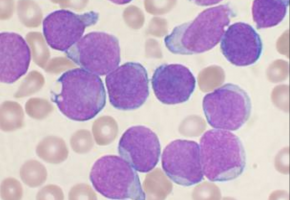
The European Commission (EC) has approved an expanded indication for blinatumomab as monotherapy for the treatment of paediatric patients aged one year or older with Philadelphia chromosome-negative CD19 positive B-cell precursor acute lymphoblastic leukaemia (ALL), which is refractory or in relapse after receiving at least two prior therapies or in relapse after receiving prior allogeneic hematopoietic stem cell transplantation.
The approval is based on results from the Phase 1/2 ‘205 study, an open-label, multicenter, single-arm trial which evaluated the efficacy and safety of blinatumomab in pediatric patients with relapsed or refractory B- cell precursor ALL.
This follows the FDA granting an accelerated approval to blinatumomab in April this year for B-cell precursor ALL, and the EC approving blinatumomab for adult patients with Philadelphia chromosome-negative (Ph-) relapsed or refractory B-cell precursor ALL in June.
Study '205 evaluated the safety and efficacy of blinatumomab in a Phase 1/2 open-label, multicenter, single-arm study in 93 pediatric patients with Ph- relapsed or refractory B-cell precursor ALL (second or later bone marrow relapse, any marrow relapse after allogeneic hematopoietic stem cell transplantation [alloHSCT], or refractory to other treatments and had greater than 25 percent blasts in bone marrow).
The results were published in the Journal of Clinical Oncology.
Among the 70 patients treated at the recommended dosage, the median age was eight years (range: seven months to 17 years), 40 out of 70 (57.1 percent) had undergone alloHSCT prior to receiving blinatumomab, and 39 out of 70 (55.7 percent) had refractory disease; the mean number of treatment cycles was 1.5.
Twenty out of 70 patients (28.6 percent) achieved a complete response or complete response with partial hematologic recovery within two treatment cycles; with 17 of 20 responses (85 percent) occurring within the first cycle.
In general, the adverse reactions in blinatumomab-treated pediatric patients were similar in type to those seen in adult patients with relapsed or refractory B-cell precursor ALL.
Source: Amgen